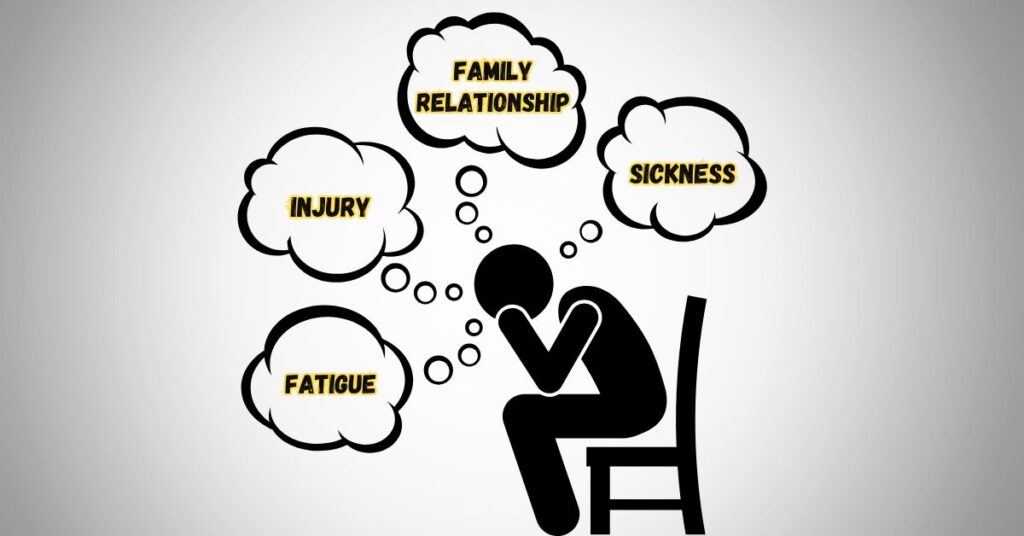Stress management involves learning how to handle life’s challenges healthily. It’s about using techniques that help reduce the physical and mental strain caused by stress. You can regain balance and feel more in control with the right strategies.
Stress can feel overwhelming, especially affecting your health, work, and relationships. If you’re feeling anxious or drained, it’s time to take action. Finding simple ways to manage stress can make a big difference in your daily life.
In this article, you’ll discover practical tips to reduce stress and improve your overall well-being. These strategies will help you create a calmer, healthier lifestyle from exercise to mindfulness. Let’s get started on your stress-free journey.
Understanding Stress

Stress is your body’s reaction to any demand or challenge. It can be helpful in short bursts, such as when meeting a deadline, but long-term stress can harm your health. Acute stress happens briefly, like before a big test, while chronic stress builds up over time. Chronic stress can lead to anxiety, high blood pressure, and sleep problems. To combat this, it’s crucial to slow down take breaks, and recognize your stress triggers.
Your mind and body need balance to cope effectively. By identifying what causes stress, you can take steps to manage it. Write in a stress journal to identify patterns and focus on creating a routine. Knowing when to say no or ask for help also reduces stress and improves your resilience.
You May Also Read this Article: Top Rated Dental Clinics For Preventive Care
How Stress Affects Everyday Life

Stress impacts your health, emotions, and behavior. It can cause headaches, muscle pain, and upset stomachs. Mentally, stress triggers irritability, anger, or feelings of helplessness. These effects may make simple tasks feel overwhelming. That’s why it’s vital to relax your muscles, stretch, or take a hot bath to ease tension.
Stress doesn’t just stay in your mind; it seeps into your relationships and work performance. Switch to the slow lane while driving to avoid road rage and take moments to breathe deeply. Managing stress is about knowing how it affects you and developing skills to handle it. Small changes like these create a big difference in your daily life.
Causes of Stress

Stress stems from a variety of causes, both external and internal. External triggers include work deadlines, financial worries, or family responsibilities. Internal causes might be perfectionism or negative self-talk. Stop thinking you can do so much and focus on what’s manageable.
Understanding what stresses you out helps in planning better responses. Break down big tasks into smaller, manageable parts to make challenges less daunting. Whether it’s balancing a budget or managing household chores, identifying specific stressors makes it easier to address them step by step.
| Common Stress Causes | Internal Stress Triggers |
| Work deadlines | Negative thoughts |
| Financial pressures | Unrealistic expectations |
| Family obligations | Fear of failure |
Recognizing Stress Problems
To manage stress effectively, it’s crucial to recognize its signs early. Stress often manifests physically, such as through headaches, muscle tension, or fatigue. These signs can interfere with your ability to focus and function normally. Emotionally, stress can cause feelings of anxiety or irritability, making it hard to enjoy daily activities.
Paying attention to these early signs is the first step in reducing stress. Another useful approach is dedicating time to hobbies or relaxing activities that you enjoy. These can help you unwind and counteract stress. Keeping a stress journal allows you to track recurring stressors, helping you identify patterns and take control of your stress triggers.
Effective Stress Management Techniques

Recognizing stress early is vital for managing it. Stress can show up physically, with symptoms like headaches or tension. Emotionally, it can leave you feeling overwhelmed or irritable, impacting your ability to concentrate. Identifying these signs early allows you to address stress before it worsens.
To manage stress effectively, dedicate time to activities that relax you. Whether it’s reading, exercising, or spending time with loved ones, engaging in enjoyable activities provides relief. Additionally, writing in a stress journal can help you track recurring stressors. By understanding your reactions, you can develop healthier coping strategies to reduce the impact of stress on your life.
Exercise and Physical Activity for Stress Relief
Regular exercise is a powerful tool for managing stress. Activities like jogging, yoga, or even dancing relax your muscles and improve your mood. Aim for 2 hours and 30 minutes of moderate exercise weekly, but small steps, such as walking or stretching, can also have a positive impact. Exercise helps release endorphins, which are natural mood boosters, making it easier to handle stress.
Incorporating physical activity into your routine might be challenging at first, but it’s worth it. The physical benefits, combined with a calmer mindset, make stress more manageable. Regular exercise not only strengthens the body but also enhances your emotional resilience, helping you cope with life’s challenges.
Healthy Diet and Sleep for Stress Management
A balanced diet plays a vital role in managing stress. Nutrient-rich foods, such as those high in omega-3 fatty acids and magnesium, help stabilize your mood. Skipping meals can worsen stress, so maintain regular eating habits to keep your energy levels steady. A healthy diet provides essential nutrients that help your body cope with stress.
Quality sleep is equally crucial for stress management. It restores your body and mind, making it easier to handle life’s pressures. Prioritize sleep by creating a calming bedtime routine, and keeping the room dark and quiet. A restful night’s sleep improves resilience, helping you face the next day with greater strength.
Relaxation Practices: Meditation, Laughter, and Yoga
Meditation and mindfulness are powerful techniques for managing stress. They help calm your mind, improve focus, and reduce anxiety. By incorporating deep breathing exercises, you lower cortisol levels and promote a sense of relaxation. Regular practice can make stress more manageable over time, allowing you to stay centered in difficult moments.
Laughter and yoga are also effective ways to relieve stress. Laughing reduces stress hormones and boosts your immune system, instantly lightening your mood. Yoga combines physical postures with deep breathing to relax your muscles and promote inner peace. Whether through laughter, yoga, or meditation, these practices offer lasting stress relief.
FAQ’s
What are some effective ways to reduce daily stress?
Engaging in regular physical activity, maintaining a balanced diet, and practicing relaxation techniques like meditation can help manage stress.
How does exercise help in stress management?
Exercise releases endorphins, natural mood lifters, and helps relax muscles, reducing stress levels.
What role does diet play in managing stress?
Consuming nutrient-rich foods stabilizes mood and energy levels, aiding in stress reduction.
Why is sleep important for stress management?
Adequate sleep restores the body and mind, enhancing resilience against stress.
Can mindfulness practices help reduce stress?
Yes, mindfulness techniques like meditation and deep breathing can lower cortisol levels and promote relaxation.
Conclusion
Stress Management: Effective Tips to Reduce Daily Stress is essential for leading a balanced life. Recognizing the signs of stress early and taking action can help you feel better. Simple habits like exercising, eating well, and getting enough sleep play a huge role in managing stress effectively. These small changes can have a big impact on your mood and energy levels.
By practicing relaxation techniques such as meditation, yoga, and laughter, you can reduce stress even further. Incorporating these strategies into your daily routine will help you stay calm, focused, and better prepared to handle life’s challenges.







